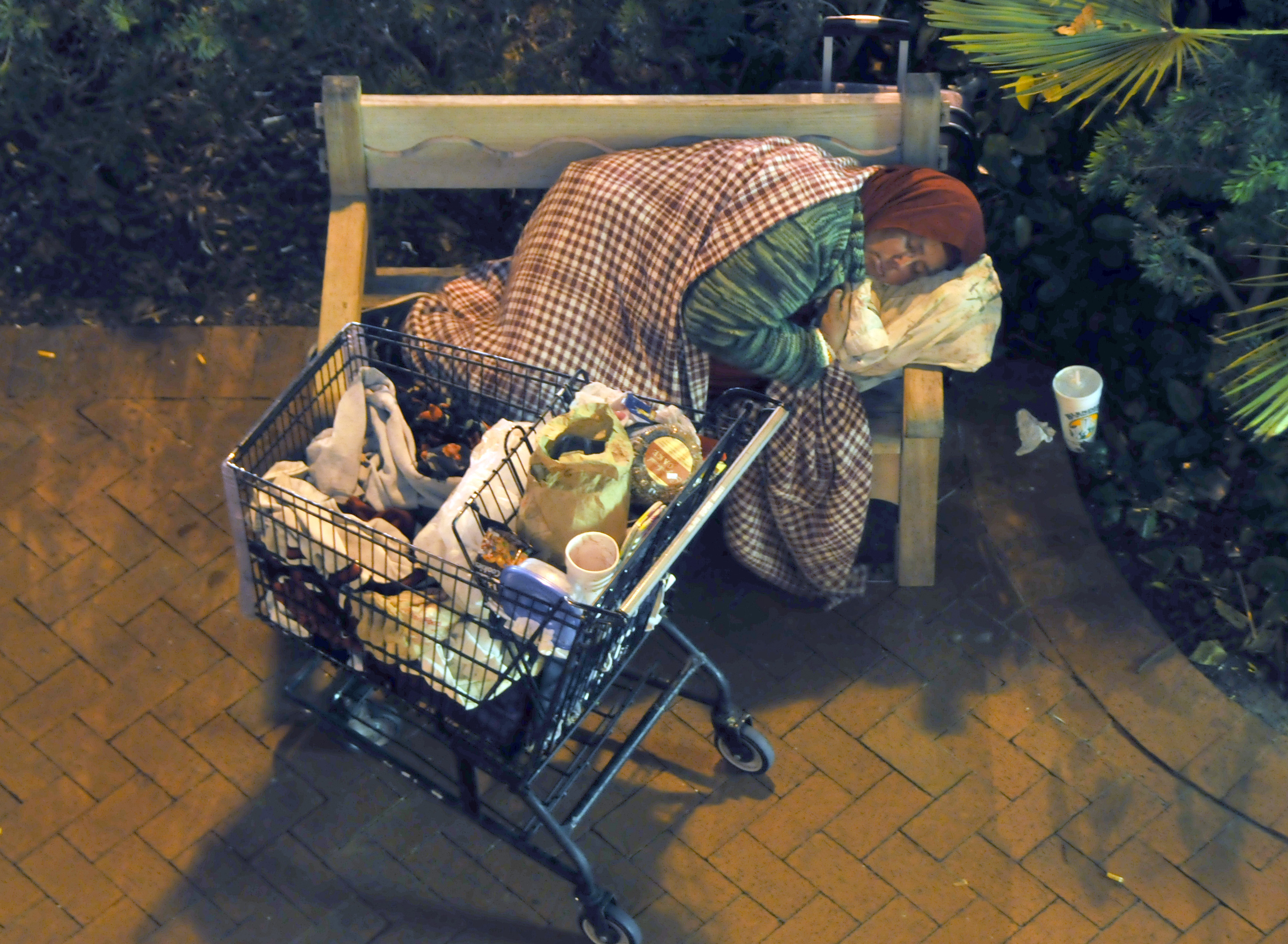Crackdown Threatens ’Cage Free’ Shopping Carts?
To Curb Street Use of Handy Carriers, Santa Barbara Considers Theft-Prevention and Retrieval Law

In response to complaints about purloined shopping carts increasingly deployed by homeless people to crate their belongings about, the Santa Barbara City Council took the first steps to passing an ordinance that will require owners to submit plans itemizing how they will prevent shopping cart theft and how they will retrieve stolen carts. The council’s Ordinance Committee voted 2 to 1 to refer the measure to the council, though not before Mayor Cathy Murillo and Councilmember Kristen Sneddon expressed reservations about imposing what might be construed as “onerous” on city merchants, especially those who’ve had their property stolen.
“Fines make me nervous,” said Mayor Murillo. “We’re trying to be business friendly.” Councilmember Sneddon added, “If my bike is stolen, I’m not the one to have to go out and find it.”
If approved as written, merchants would be responsible for submitting theft prevention and retrieval plans to the city. Those that don’t could face fines of $50 if the city’s retrieval service finds three of their stolen carts within a six-month period.
Councilmember Randy Rowse relayed the frustration he’d heard from city cops upon finding stolen shopping carts with their identifying tags removed. The new ordinance — as proposed it would apply to 34 businesses, primarily supermarkets, grocery stores and liquor stores — would require ID tags be affixed to all carts.
City Attorney Ariel Calonne stressed that the intent was not to criminalize either the homeless or the merchants but to address a public nuisance. The crime, Calonne stated, was not to possess an unidentified shopping cart, but to steal one.
Councilmember Sneddon expressed concern about the legal status of personal possessions stored in retrieved shopping carts. Private citizens were not advised, she was told, to confront individuals with such carts; that action should be left to the police. But it wasn’t made clear what would happen to any possessions found in a retrieved cart.
Statewide, Calonne said, 150 municipal governments had shopping cart ordinances. In 2012, 99 had retrieval plan requirements. Currently, City Hall contracts with a private company to collect errant shopping carts — “cage free” in the words of Councilmember Rowse. That company now gets paid a bounty of $3 a cart and collects about 7 to 12 carts a day. The new ordinance was necessary, said Calonne because, “The three buck economy is not working.”
According to the owner of Tri-County Produce, shopping carts cost $200 a piece. Businesses that equip their carts with automatic locking devices would be exempt from any new ordinance as will any companies that have contracts with cart retrieval services. Sneddon and Murillo both wanted language added that would exempt smaller businesses with only a few shopping carts.
Councilmember Rowse pushed for the new language to be referred to the council as a whole sooner rather than later; to do so, he said, would benefit communication with the public on what’s a growing nuisance. At one point, Rowse asked staff whether City Hall maintained “a hot line” for stolen shopping carts. Not yet, he was told, but it could be folded into an existing hot line for homeless encampments.



